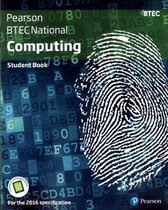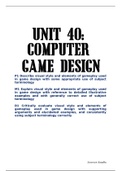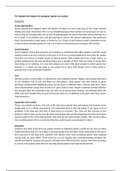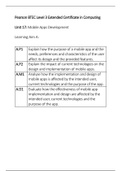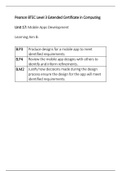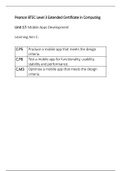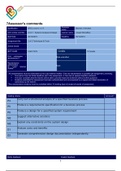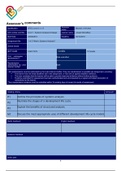PEARSON (PEARSON) • Computing
Latest uploads for Computing at PEARSON (PEARSON). Looking for Computing notes at PEARSON (PEARSON)? We have lots of notes, study guides and revision notes available for Computing at PEARSON (PEARSON).
-
268
-
2
-
22
Modules Computing at PEARSON (PEARSON)
Notes available for the following courses of Computing at PEARSON (PEARSON)
- Unit 1 - Principles of Computer Science N3210 13
- Unit 1 - The Online World 1
- Unit 1 The online World 3
- Unit 1: Programming 1
- Unit 10 - Human-computer Interaction Unit 23 HCI 9
- Unit 10 Web Design and Development 1
- Unit 11 - Digital Graphics and Animation 5
- Unit 11 Maths For Computing 1
- Unit 11-Cyber Security 1
- Unit 12 - Digital Audio 1
- Unit 13 - Digital Video 2
- Unit 14 - Computer Games Development 7
- Unit 14 Business Intelligence 1
- Unit 15 - Website Development 12
- Unit 15 Transport Network Design 1
- Unit 16 - Object-oriented Programming 5
- UNIT 16 PROCEDURAL PROGRAMMING L/601/7283A 1
- Unit 17 - Mobile Apps Development 15
- Unit 17: Network Security 1
- Unit 18 - Relational Database Development 5
- Unit 18 P1,M1 1
- Unit 18: Discrete Mathematics 1
- Unit 19 - Computer Networking 5
- Unit 19 The Internet of Things 1
- Unit 19-Internet of Things 1
- Unit 19: The Internet of Things 2
- Unit 2 - Fundamentals of Computer Systems 5
- Unit 2: Networking 1
- Unit 20 - Managing and Supporting Systems 5
- Unit 20-Advanced Programming 1
- Unit 21 Data Analysis and Design 1
- Unit 22 - Systems Analysis and Design CS190 22
- Unit 22: Developing Computer Games K/601/7324 1
- Unit 23 - Systems Methodology 2
- Unit 23 Human Computer Interaction 1
- Unit 24 - Software Development* 5
- Unit 26: Fundamentals of Computer Applications R/505/4633 2
- Unit 27 - 3D Modelling* 5
- Unit 27: Developing Programmed Solutions J/505/5214 1
- Unit 29 - Network Operating Systems* 4
- Unit 3 - Planning and Management of Computing Projects 4
- Unit 3 - Using Social media in Business 1
- Unit 3 - Website Development 06F301YA 1
- Unit 3 Social Media in Business 1
- Unit 30 - Application Development 1
- Unit 32 - Business Process Modelling Tools* 4
- Unit 32 - Networked Systems Security 1
- Unit 4 - Programming 1
- Unit 4 - Programming Assignment 1 06F301YA 1
- Unit 4 - Software Design and Development Project 3
- Unit 4: Database Design and Development 1
- UNIT 40 COMPUTER GAME DESIGN H/502/5671 4
- Unit 41 1
- Unit 5 - Building Computer Systems* 3
- Unit 5 : Security 1
- Unit 5: Data Modeling 1
- Unit 6 - IT Systems Security* 2
- Unit 6 - Website Development 1
- Unit 6 Website Development 1
- Unit 7 - IT Systems Security and Encryption 45
- Unit 7 Mobile Application Development 1
- Unit 7: Systems Security & Encryption 1
- Unit 8 - Business Applications of Social Media 7
- Unit 8 - Computer Games Development 2
- Unit 8 - Game Development Assignment 1 06F301YA 1
- Unit 8 Computer Games Development 2
- Unit 8 Game Development 1
- Unit 8-Game Development 1
- Unit 9 - The Impact of Computing 5
- Unit41 1
- Unit41 3D Modelling 1
- Unit9-Project Management 1
Popular books PEARSON (PEARSON) • Computing
Latest notes & summaries PEARSON (PEARSON) • Computing
P1 describe visual style and elements of gameplay used in game design with some appropriate use of subject terminology M1 explain visual style and elements of gameplay used in game design with reference to detailed illustrative examples and with generally correct use of subject terminology D1 critically evaluate visual style and elements of gameplay used in game design with supporting arguments and elucidated examples, and consistently using subject terminology correctly
P1 explain the key features of procedural programs M1 explain why modular elements are important for procedural programming D1 evaluate the suitability of procedural programs for graphical applications
P1 explain the impact of computer games on society D1 examine the psychological effects of computer gaming on individuals and society [IE3] P2 describe different types of computer game
Comparing and contrasting different operating systems used in mobile technology in full detail with references
This contains both D1 and P1 of unit 23 human computer interaction coursework. This is distinction level of work that I have created. It describes and explains in detail the impact of HCI on the economy, society and culture. References are included in the assignment. In addition, I explained the potential future developments of HCI. Includes both negative and positive aspects.
A.P1 Explain how the purpose of a mobile app and the needs, preferences and characteristics of the user affect its design and the provided features. A.P2 Explain the impact of current technologies on the design and implementation of mobile apps. A.M1 Analyse how the implementation and design of mobile apps is affected by the intended user, current technologies and the purpose of the app. A.D1 Evaluate how the effectiveness of mobile app implementation and design are affected by the intended u...
B.P3 Produce designs for a mobile app to meet identified requirements. B.P4 Review the mobile app designs with others to identify and inform refinements. B.M2 Justify how decisions made during the design process ensure the design for the app will meet identified requirements.
C.P5 Produce a mobile app that meets the design criteria. C.P6 Test a mobile app for functionality, usability, stability and performance. C.M3 Optimise a mobile app that meets the design criteria. GRADE: Distinction
Systems Analysis & Design Assignment 2
Systems Analysis & Design Assignment 1

